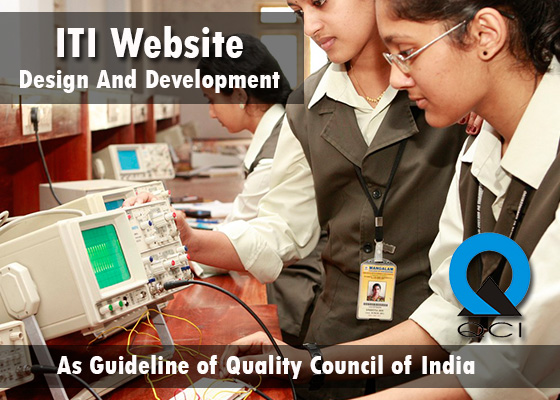Employability Skills

Hard skills are a person’s skill set and ability to perform a certain type of activity or task. Soft skills are a person’s ability to interact effectively with co-workers and customers. Hard skills are mainly applicable at the work place. Soft skills are broadly applicable both at and outside the work place. Soft skills complement the hard skills which are occupational requirement of a job. It also complements many other activities even outside the work place. Presently soft skills are increasingly sought out by employers in addition to standard qualification. There are instances of professions where soft skills proved to be more important, on a long term basis than occupational skills. Soft skills refer to a number of features viz. behavior, personal finance management, communication, etc. those make persons excellent workers and suitable to work in a team. Studies suggest that soft skills are equally important indication of job performance as hard skills.
Recognizing this importance of soft skills the National Council for Vocational Training (NCVT) during its 38th Meeting held on 31st May, 2011 recommended introduction of subject “Employability Skills” replacing “Social Studies” in ITI curricula. Government of India accepted the above recommendation of the council (NCVT) and introduced the subject “Employability Skills” in ITI curricula in place of “Social Studies” from the August, 2012 session.
English Literacy
Pronunciation: Accentuation (mode of pronunciation) on simple words, Diction (use of word and speech)
Functional Grammar: Transformation of sentences, Voice change, Change of tense, Spellings.
Reading: Reading and understanding simple sentences about self, work and environment
Writing: Construction of simple sentences Writing simple English
Speaking / Spoken English: Speaking with preparation on self, on family, on friends/ classmates, on know, picture reading gain confidence through role-playing and discussions on current happening job description, asking about someone’s job habitual actions. Cardinal (fundamental) numbers ordinal numbers. Taking messages, passing messages on and filling in message forms Greeting and introductions office hospitality, Resumes or curriculum vita essential parts, letters of application reference to previous communication
I.T. Literacy
Basics of Computer Introduction, Computer and its applications, Hardware and peripherals, Switching on-Starting and shutting down of computer
Computer Operating System Basics of Operating System, WINDOWS, The user interface of Windows OS, Create, Copy, Move and delete Files and Folders, Use of External memory like pen drive, CD, DVD etc, Use of Common applications.
Word processing and Worksheet Basic operating of Word Processing, Creating, opening and closing Documents, use of shortcuts, Creating and Editing of Text, Formatting the Text, Insertion & creation of Tables. Printing document. Basics of Excel worksheet, understanding basic commands, creating simple worksheets, understanding sample worksheets, use of simple formulas and functions, Printing of simple excel sheets
Computer Networking and INTERNET Basic of computer Networks (using real life examples), Definitions of Local Area Network (LAN), Wide Area Network (WAN), Internet, Concept of Internet (Network of Networks), Meaning of World Wide Web (WWW), Web Browser, Web Site, Web page and Search Engines. Accessing the Internet using Web Browser, Downloading and Printing Web Pages, Opening an email account and use of email. Social media sites and its implication. Information Security and antivirus tools, Do’s and Don’ts in Information Security, Awareness of IT – ACT, types of cyber crimes.
Communication Skills
Introduction to Communication Skills
- Communication and its importance
- Principles of Effective communication
- Types of communication – verbal, non verbal, written, email, talking on phone.
- Non verbal communication –characteristics, components-Para-language
- Body – language
- Barriers to communication and dealing with barriers.
- Handling nervousness/ discomfort.
Listening Skills
- Listening-hearing and listening, effective listening, barriers to effective listening guidelines for effective listening.
- Triple- A Listening – Attitude, Attention & Adjustment.
- Active Listening Skills.
Motivational Training
- Characteristics Essential to Achieving Success
- The Power of Positive Attitude
- Self awareness
- Importance of Commitment
- Ethics and Values
- Ways to Motivate Oneself
- Personal Goal setting and Employability Planning
Facing Interviews
- Manners, Etiquettes, Dress code for an interview
- Do’s & Don’ts for an interview
Behavioral Skills
- Problem Solving
- Confidence Building
- Attitude
ITI Student Resume Portal
रिज्यूम पोर्टल का मुख्य उद्देश्य योग्य छात्रों की जानकारी सार्वजनिक पटल पर लाने की है जिससे जिन्हें आवश्यकता हो वह अपने सुविधा अनुसार छात्रों का चयन कर सकते हैं


